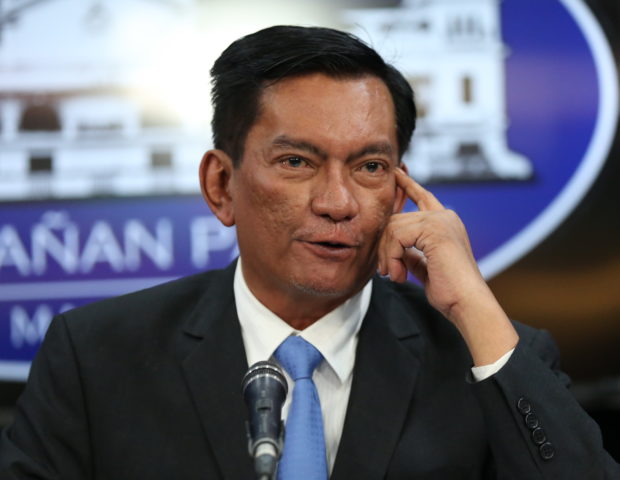
Albay 2nd District Rep. Joey Salceda. INQUIRER FILE PHOTO
MANILA, Philippines — With senators and economic managers unwilling to consider a new aid law after the government failed to spend the funds allocated in an earlier version, House leaders said Congress should still pass a supplemental budget even if it meant a Bayanihan 3 law would be reduced to less than half the cost of the original proposal.
Albay Rep. Joey Salceda, chair of the House ways and means committee, pointed out that Republic Act No. 11518, or this year’s national budget law, doesn’t have anything allocated for another strict lockdown and President Duterte “does not have unilateral power to realign from the national budget.”
“There’s no other recourse but a supplemental budget through Bayanihan 3. The economic managers [have been] broaching the idea of a P173- billion package. We can live with that. The Senate majority appears willing to live with it as well,” he said.
GOCC remittances
Speaker Lord Allan Velasco had been insisting on the passage of a new Bayanihan law, amounting to P401 billion, but economic managers said they did not have funds for such a measure and senators complained that the government could not even spend the funds Congress allocated for Bayanihan 2.
But Barangay Health Workers Rep. Angelica Natasha Co stressed that the enhanced community quarantine (ECQ) that the government plans to impose from Aug. 6 to 20 cannot be implemented without financial aid for the poorest and most vulnerable
She suggested tapping into remittances from government-owned and -controlled corporations (GOCCs), discretionary funds, short-term treasury bills, and interest income on government funds in banks.
Co also suggested using intelligence funds for contact-tracing efforts and COVID-19 database activities, which she said “can be regarded as intelligence work.”
Social safety nets
The government should roll out much-needed social safety nets like relief goods distribution, and Pantawid Pasada and Pantawid Kuryente subsidies to aid low-income households.
“The National Food Authority’s rice stockpiles for emergencies can also be used as noncash aid to the poor in Metro Manila,” she added.
Aside from its logistical problems, Salceda doubted that imposing another lockdown would even work.
“ECQs only work when done early enough. It does not work in response to a wave, because its impact is lagged. We’ll see its benefits only a month later, since we’re implementing it only next week. So I have second thoughts about whether it will work this time,” Salceda said.
For House Deputy Speaker and Bagong Henerasyon Rep. Bernadette Herrera, Malacañang should reconsider its decision to place Metro Manila on lockdown.
Herrera said the economy and the people had suffered a lot and that imposing ECQ on Metro Manila, the country’s main economic and financial hub, will push more people into extreme poverty.
“They certainly cannot afford another lockdown without enough financial assistance from the government,” she said.